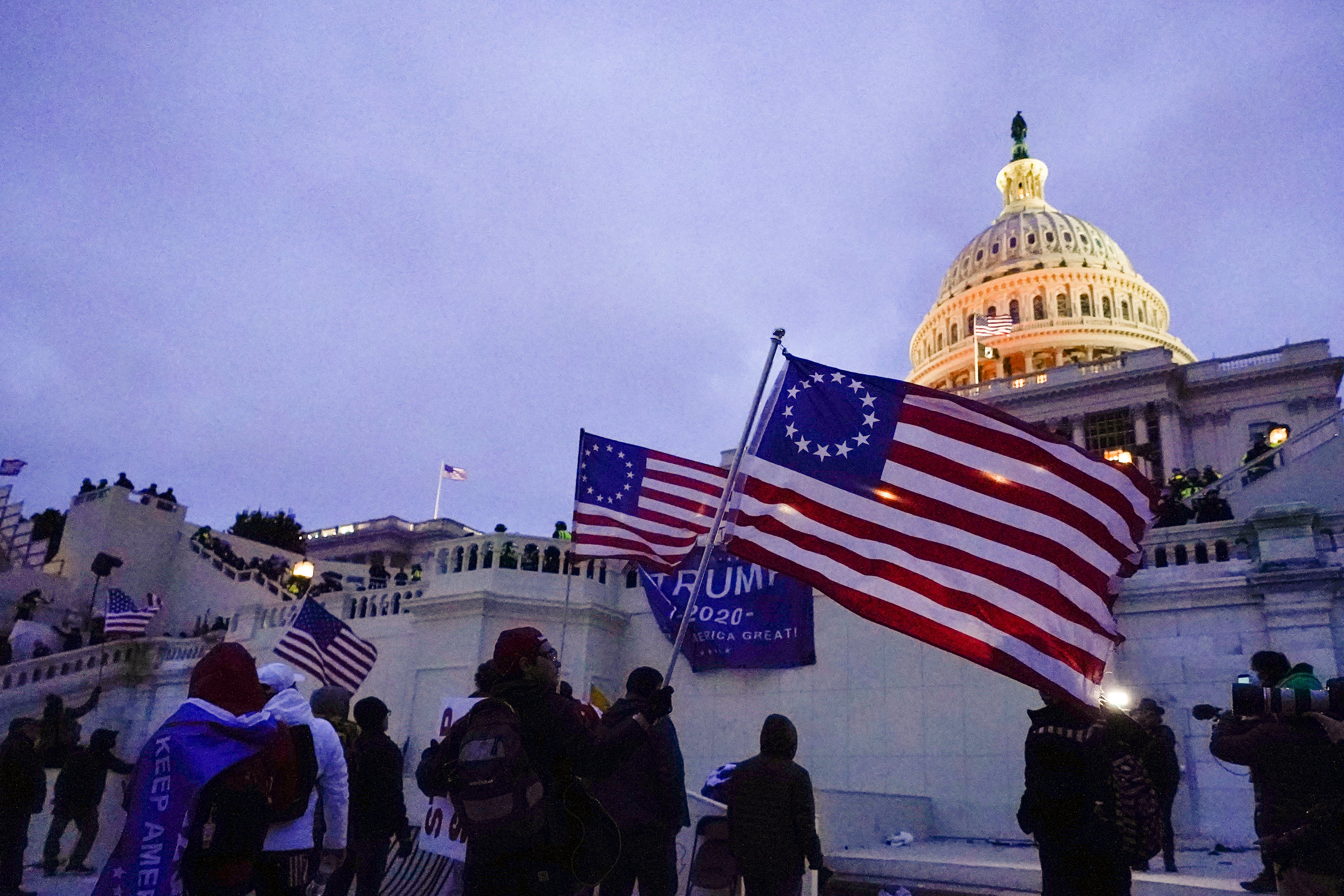Judge in Trump election conspiracy case rules he does not have presidential immunity
Judge Tanya Chutkan, who is overseeing the case, said that the former president’s time in office did not bestow on him ‘the divine right of kings’ to evade criminal accountability.
The judge presiding over Donald Trump’s federal election conspiracy case in Washington DC has rejected a motion to dismiss the case based on his argument that he enjoys presidential immunty.
Judge Tanya Chutkan, who is overseeing the case, said that the former president’s time in officer did not bestow on him “the divine right of kings” to evade criminal accountability.
It comes as a long-awaited federal appeals court ruling also determined that Mr Trump can be held civilly liable for inciting the riots at the US Capitol on 6 January, 2021 in the wake of his 2020 loss.
Lawyers for Mr Trump had also tried to use his presidential “immunity” as a shield from the litigation.
In her ruling on Friday, Judge Chutkan said: “[The] defendant’s four-year service as Commander in Chief did not bestow on him the divine right of kings to evade the criminal accountability that governs his fellow citizens.”

The decision tees up a legal fight over the scope of presidential power that could ultimately reach the US Supreme Court.
Mr Trump, who has denied any wrongdoing in the case, is expected to quickly appeal to fight what his lawyers have characterized as an unsettled legal question.
The Associated Press reported that an attorney for the former president declined to comment on Friday evening, following the ruling.
In the ruling, Judge Chutkan added that the office of the president “does not confer a lifelong ‘get-out-of-jail-free’ pass”.
"Former Presidents enjoy no special conditions on their federal criminal liability. Defendant may be subject to federal investigation, indictment, prosecution, conviction, and punishment for any criminal acts undertaken while in office,” she wrote.
“Granting the immunity Defendant seeks would also break with longstanding legal precedent that all government officials – even those immune from civil claims – may be held to criminal account.”
The 48-page ruling also noted the attempt by Trump lawyers to dismiss the case due to a violation of his First Amendment right.
“It is well established that the First Amendment does not protect speech that is used as an instrument of a crime, and consequently the Indictment—which charges Defendant with, among other things, making statements in furtherance of a crime—does not violate Defendant’s First Amendment rights,” the ruling read.
“That Defendant’s alleged criminal conduct involved speech does not render the Indictment unconstitutional.”
Earlier on Friday, a US appeals court, also in Washington DC, ruled that Mr Trump can be sued for inciting the Capitol riot.
The appeals court was asked to determine whether Mr Trump has “demonstrated an entitlement to official-act immunity for his actions leading up to and on January 6 as alleged in the complaints.”
“We answer no, at least at this stage of the proceedings,” they wrote in a ruling.
Presidents typically cannot face civil litigation stemming from actions they take while fulfilling the duties of their office. However, seeking a second term of office is not the same as fulfilling the duties of that office, according to the court’s ruling.
“When a first-term President opts to seek a second term, his campaign to win re-election is not an official presidential act. The Office of the Presidency as an institution is agnostic about who will occupy it next. And campaigning to gain that office is not an official act of the office,” the court determined.
The Supreme Court has held that presidents are immune from civil liability for actions related to their official duties, but the justices have never grappled with the question of whether that immunity extends to criminal prosecution. Special counsel Jack Smith’s team has said there is nothing in the Constitution, or in court precedent, to support the idea that a former president cannot be prosecuted for criminal conduct committed while in the White House.
“The defendant is not above the law. He is subject to the federal criminal laws like more than 330 million other Americans, including Members of Congress, federal judges, and everyday citizens,” prosecutors wrote in court papers.
Join our commenting forum
Join thought-provoking conversations, follow other Independent readers and see their replies
Comments
Bookmark popover
Removed from bookmarks